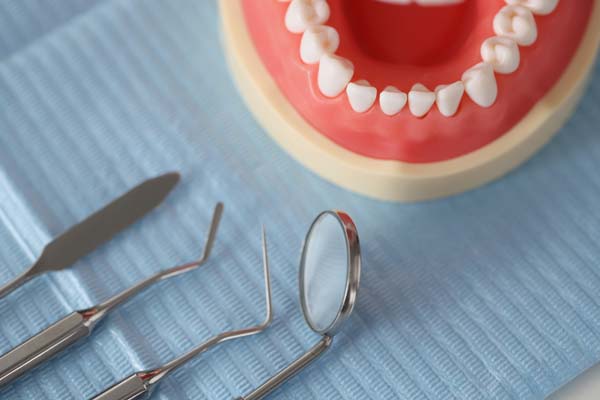Can a General Dentist Receive Endodontic Training to Perform Periodontic Care?

Thinking you are in need of endodontic services? Both periodontists and endodontists are types of dental professionals who focus on treating patients who are experiencing dental problems that are related to their gums and other supporting structures in or near the teeth.
About general dentists
Learning more about the endodontic training necessary to become a periodontist allows you to understand more about this type of dental professional. Becoming a general dentist requires one to attend a four-year dental program in order to first earn a degree in dental medicine. While many dentists will take their degree and open up their own general dentistry practice, many will also choose to undergo the additional dental education that allows them to focus on a specific area of dentistry. So yes, a general dentist can undergo endodontic training in order to provide their patients with periodontic care services.
The six specific areas of dentistry that a general dentist can choose to focus on are becoming a periodontist, an orthodontist, a pediatric dentist, an oral and maxillofacial surgeon, a prosthodontist and an endodontist.
Who should see an endodontist?
Patients should see an endodontist when there is a chance that they may lose one or more of their teeth. The focus of this type of dental professional is to save their patient's teeth, which often requires them to perform root canals. While a general dentist can also perform a root canal, endodontists are specifically trained in performing difficult or very complex root canal procedures. They also treat traumatic dental injuries and can perform endodontic surgeries.
According to the American Association of Endodontists, endodontists specialize in saving teeth and are committed to helping dental patients maintain their natural smiles.
Who should see a periodontist?
Patients who have been diagnosed with more serious signs of periodontal disease should be seen by an experienced periodontist. When dental patients are diagnosed with moderate to severe periodontal disease, it is essential that they receive the endodontic treatment they need in order to improve their overall oral health. The fact that periodontal disease is directly connected to one’s overall health makes it essential for anyone who is living with periodontal disease to seek treatment from an experienced periodontist as soon as possible.
According to the American Dental Association, a periodontist is a dentist who specializes in the prevention, diagnosis and treatment of periodontal disease and the placement of dental implants.
About root canal therapy
Root canal therapy is a common procedure performed when a dental patient has a tooth infection that is so bad that the infection has entered the tooth. Once infection enters a tooth, a root canal is the most common type of procedure performed, as it can save the tooth from dying. Once a tooth dies, it can no longer perform the job it is supposed to do and therefore needs to be extracted from the mouth.
Do you need to make an endodontic appointment?
If you are in need of endodontic dental services, understand that the sooner you make an appointment for treatment, the better. Now that you understand that a general dentist can further their training and education in order to become a periodontist, you can feel even more confident about undergoing any necessary endodontic treatments to improve your good oral health.
Request an appointment here: https://www.rockvillefamilydental.com or call Rockville Family Dental at (301) 575-0941 for an appointment in our Rockville office.
Check out what others are saying about our dental services on Yelp: Endodontic in Rockville, MD.
Recent Posts
Thinking you may be in need of endodontic services? Your good overall oral health is not only important so you can have a healthy mouth, but when your oral health is in good shape, it is likely that your overall general health will be in good shape as well. This fact makes it a good…
Endodontics may be necessary if the pulp inside of the root of a tooth becomes damaged, decayed, or infected. This generally arises when the root of the tooth is exposed due to deep dental decay, dental trauma, or periodontal concerns (e.g., gum recession). Endodontics aims to restore the health of the tooth to avoid tooth…
Endodontic procedures include every treatment involving the inner tissues of the teeth, otherwise known as the pulp or nerve. The word “endodontic” is derived from two stems: “endo,” meaning inside, and “odont,” meaning tooth. Every dentist receives training on the diagnosis of endodontic procedures, but some teeth can be particularly complicated to diagnose and treat.…
If an implant dentist has suggested replacing a lost tooth or teeth with dental implants, it might help learn about the cosmetic benefits of that choice. Dental implants are a durable and reliable solution for missing teeth and the benefits are remarkable. By replacing lost teeth, patients can get their smiles back as well as…


